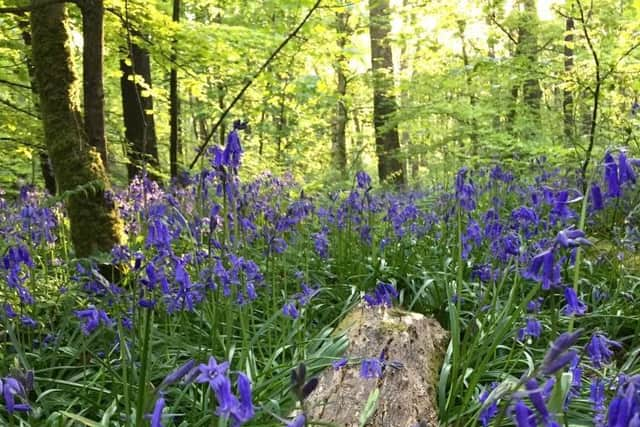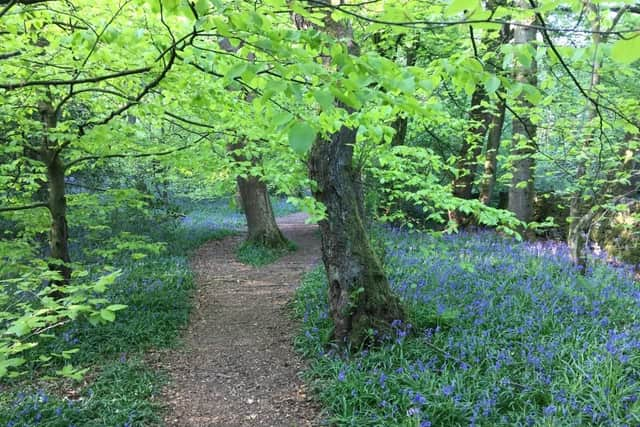Abundance of bluebells in Lancashire's woodlands and gardens helps raise the spirits this spring
and live on Freeview channel 276
As we reach the end of May, bluebells are now starting to “go over” which means they will die back until next spring.
But their abundance has helped to raise spirits during the coronavirus pandemic crisis according to Alan Wright, Campaigns Manager at the Wildlife Trust for Lancashire, Manchester and North Merseyside.
Advertisement
Hide AdAdvertisement
Hide AdAlan said: “Wandering through our local woods has been such a pleasure this year, most of the routes are lined with bluebells and carpets of this beautiful flower stretch out into the woods for hundreds of yards.


“This is great news for pollinators, like bumblebees and hoverflies, so there is an added buzz to the colours of the bluebells.”
The bluebell is a favourite and unmistakable woodland flower, with its narrow, drooping leaf fronds, and bending flower stems that are heavy with nodding, blue bell-shaped flowers.
It spends most of the year as a bulb underground in ancient woodland, only emerging to flower and leaf from April onwards.
Advertisement
Hide AdAdvertisement
Hide AdThis early flowering allows it to make the most of the sunlight that is still able to make it to the forest floor habitat, before the canopy becomes too dense.


Millions of bulbs may exist in one bluebell wood, causing the blue carpets we associate with spring.
While bluebell woods have been undisturbed during the lockdown period, Alan said there are other reasons why this year’s crop has been so big.
He said: “We have had fewer people trampling on bluebells this year and, you would hope, that most people know that they don’t live long if you pick them.
Advertisement
Hide AdAdvertisement
Hide Ad“However, the numbers of bluebells are down to excellent woodland management, clearing away invaders like Himalayan balsam and coppicing so the sunlight gets through to the trees."
To learn more about the conservation work of the Wildlife Trust for Lancashire, Manchester and North Merseyside on your patch go to www.lancswt.org.uk.